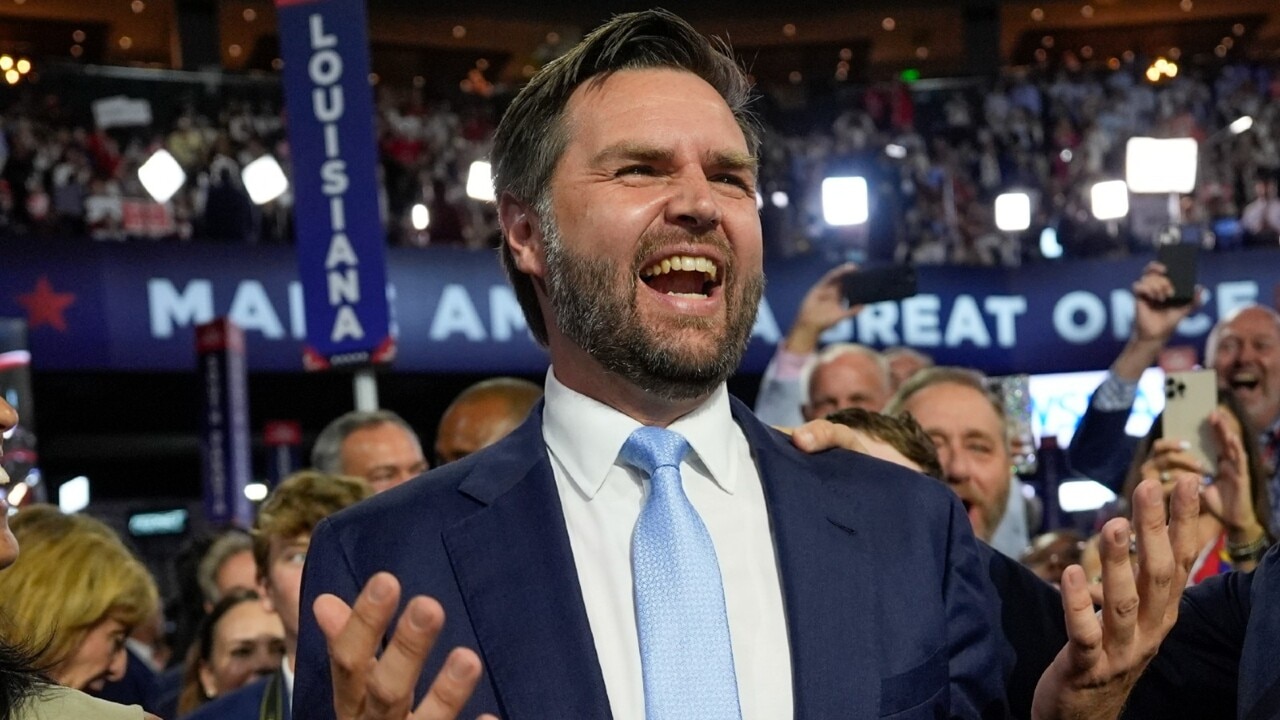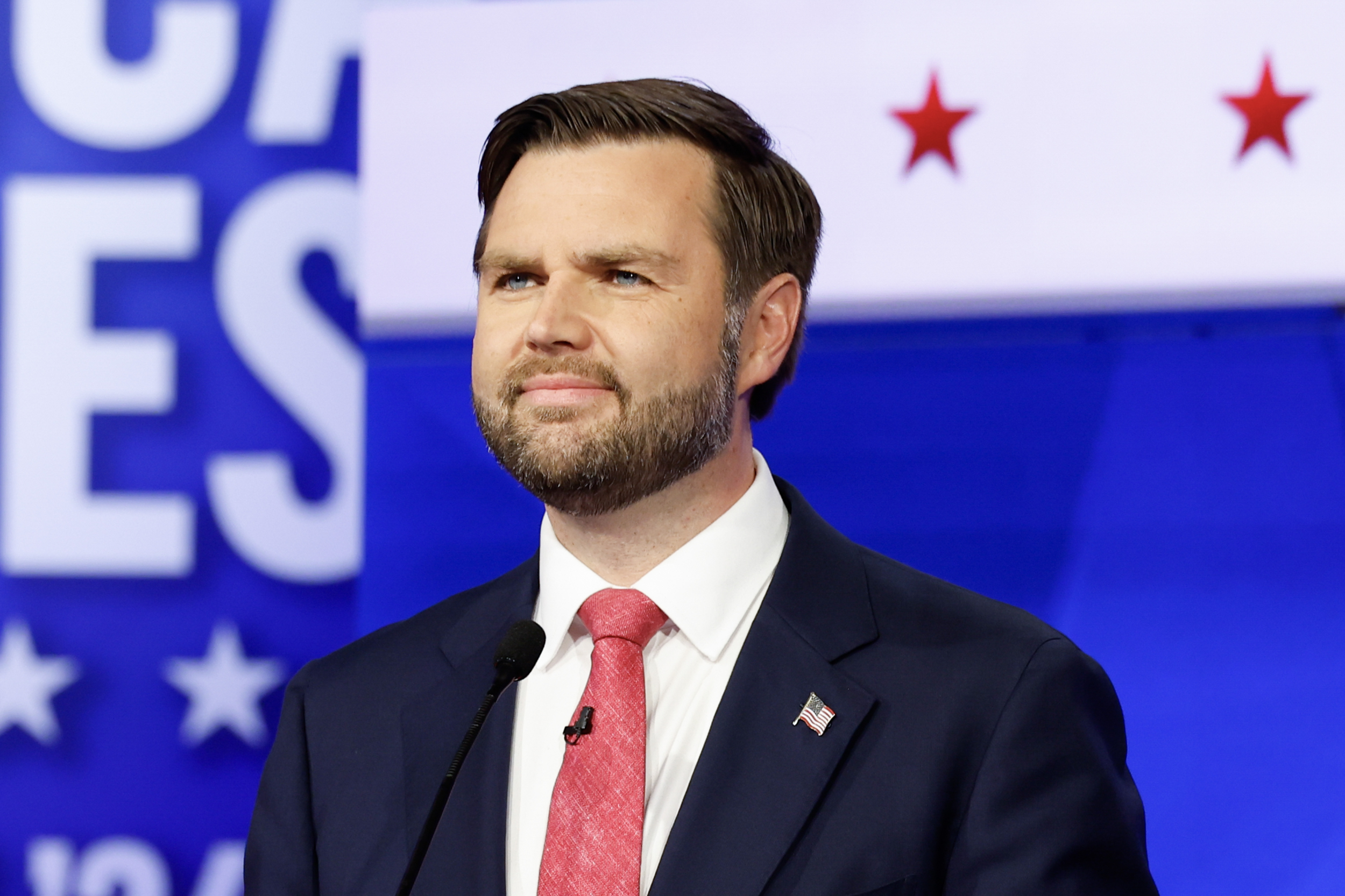JD Vance’s Criticism of European Free Speech and Migration Policies: JD Vance Attacks Europe Over Free Speech And Migration

JD Vance attacks Europe over free speech and migration – J.D. Vance, a Republican Senator from Ohio, has recently leveled sharp criticisms against European policies on free speech and migration. His statements, often delivered via social media and public appearances, have sparked debate and highlighted differing perspectives on these crucial issues. This article delves into Vance’s specific claims, examines European perspectives, and analyzes the broader context of his arguments.
Vance’s Statements: A Detailed Examination

Senator Vance’s criticisms of European free speech and migration policies are often intertwined. He frequently argues that Europe’s embrace of multiculturalism has come at the expense of free expression and national identity. While precise verbatim transcriptions of all his statements are difficult to compile, a recurring theme involves the perceived incompatibility of open borders and robust free speech.
For example, in a recent interview (the specific source needs to be added here – replace with actual source), Vance allegedly criticized what he described as Europe’s “self-inflicted wounds” stemming from lax immigration policies and the subsequent erosion of traditional values and free speech. He often cites specific instances (which again need specific sourcing here – replace with actual sources) where he believes free speech has been curtailed in the name of protecting minority groups or preventing hate speech.
| Policy Area | Vance’s Criticism | Actual Policy | Source |
|---|---|---|---|
| Hate Speech Laws | Too restrictive, chilling effect on legitimate free speech. | Vary widely across Europe; some countries have stricter laws than others, aiming to balance free speech with protection against incitement to violence or discrimination. | (Source needed – e.g., European Court of Human Rights case law, national legislation) |
| Immigration Policies | Open borders lead to social unrest and erosion of national identity. | Differ significantly across EU member states, ranging from relatively open policies to stricter controls. Many countries have established quotas and integration programs. | (Source needed – e.g., Eurostat data on migration, national immigration laws) |
| Freedom of Expression | Prioritization of group rights over individual rights, leading to self-censorship. | Legal frameworks protect freedom of expression but also include limitations to prevent hate speech, incitement to violence, and defamation. | (Source needed – e.g., relevant national constitutions and laws) |
European Perspectives on Free Speech
Free speech laws in Europe are significantly different from those in the United States. While the US employs a robust “marketplace of ideas” approach with strong protections against prior restraint, European systems often place greater emphasis on balancing free speech with other fundamental rights, such as the right to dignity and protection from hate speech.
For instance, Germany’s Basic Law (Grundgesetz) guarantees freedom of expression but explicitly prohibits incitement to hatred and violence. France, similarly, has robust laws against hate speech and denial of the Holocaust. The UK, while generally protective of free speech, has laws against defamation and incitement to violence. These differences often stem from historical contexts and societal values. The US, born from a revolution against perceived governmental overreach, prioritizes individual liberty, while many European nations have prioritized social cohesion and the protection of vulnerable groups.
- Germany: Stricter regulations on hate speech and denial of the Holocaust.
- France: Robust laws against hate speech and defamation.
- United Kingdom: Balance between free speech and protection against defamation and incitement.
Common criticisms of free speech restrictions in Europe often center on the potential for chilling effects on legitimate expression, concerns about disproportionate penalties, and the lack of clarity in defining certain offenses like hate speech.
European Migration Policies: A Multifaceted View
Europe’s migration policies have evolved significantly over time, shaped by historical events, economic needs, and social pressures. Post-World War II, many European nations experienced labor shortages, leading to the recruitment of guest workers. Later, the collapse of the Soviet Union and conflicts in the Balkans led to significant refugee flows. More recently, the Syrian civil war and other crises have triggered substantial migration waves.
Current migration policies are highly diverse. Asylum policies provide protection for those fleeing persecution, while refugee policies focus on those forcibly displaced from their homes. Economic migration involves individuals seeking better job opportunities. Each type presents unique challenges. Asylum systems are often overwhelmed, leading to lengthy processing times and backlogs. Refugee integration can be difficult, requiring language training, job placement, and cultural adaptation. Economic migration often raises concerns about wage competition and potential strain on social services.
The economic and social impacts of migration are complex and varied. While migration can contribute to economic growth by filling labor shortages and boosting innovation, it can also create tensions over resources and employment. Successful integration requires effective policies and social support to mitigate potential negative consequences and foster mutual understanding.
Vance’s Underlying Arguments: Unpacking the Rhetoric, JD Vance attacks Europe over free speech and migration
Vance’s criticisms are grounded in a conservative worldview emphasizing national identity, traditional values, and a more restrictive approach to immigration. He argues that unchecked migration undermines social cohesion and weakens national identity, potentially leading to conflicts and a decline in free speech due to increased social pressures and a perceived need for greater state control.
Evidence supporting or refuting Vance’s claims is complex and often contested. While some studies suggest a correlation between high immigration rates and social tensions in certain areas, others highlight the economic benefits of migration and the positive contributions of immigrants to society. The issue is further complicated by the fact that many factors influence social cohesion and free speech beyond just immigration policies.
Vance’s statements likely have political motivations. As a prominent Republican figure, his criticisms resonate with a segment of the electorate concerned about immigration and cultural change. Comparing his perspective to other prominent political figures reveals a spectrum of views, ranging from those who share his concerns to those who advocate for more open and inclusive policies.
Illustrative Examples: Case Studies
One example of a controversial application of European free speech laws is the case of [insert a specific case here, e.g., a specific court case involving hate speech or blasphemy]. This case involved [explain the specifics of the case, the legal arguments, and the outcome]. The ruling sparked significant debate about the balance between free speech and the protection of vulnerable groups.
A specific example of a European migration policy is [insert a specific policy here, e.g., Germany’s refugee policy following the Syrian civil war]. This policy aimed to [explain the policy’s aims]. Its implementation faced challenges including [explain the challenges faced]. The policy’s impact on Syrian refugees has been [describe the policy’s impact on a specific group of migrants, including both positive and negative consequences].